At just 16 years old, Tex Thornton is hardly a seasoned gold hunter, yet the Sydney schoolboy claimed a £50 haul within minutes of his first encounter with the precious metal this week.
Caked in mud and gold pan in hand in a river west of the Blue Mountains, Tex on Thursday joined the streams of Australians flocking to forgotten gold fields. They are propelled by the metal’s meteoric price increase to about $4,000 (£3,000) an ounce — a jump of more than 54 per cent this year alone — as gold investors, spooked by global instability and low interest rates, seek a safe haven.
“Awesome,” he declared, as his sifting revealed a collection of gold specks — about a gram — in his pan. His mother, Amanda, had given him the choice of fishing for trout or panning for gold on what she insisted would be a tech-free October school break. The two were among a bevy of gold hunters trying their luck at Hill End, a hamlet of fewer than 100 people about 170 miles northwest of Sydney, and once at the centre of Australia’s 1850 gold rush. Today, it is hurriedly being re-discovered by the armies of modern-day gold seekers.
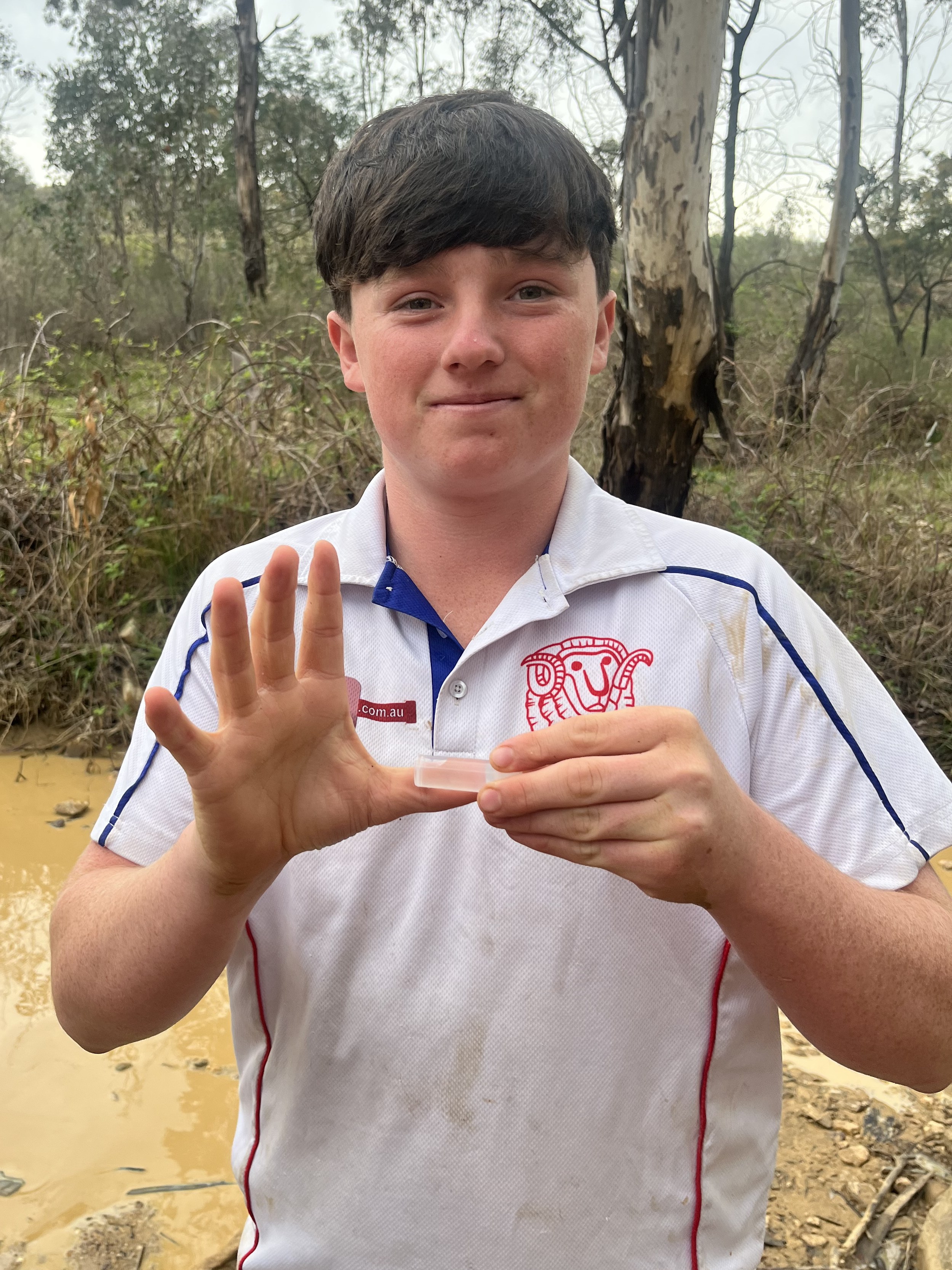
Tex Thornton, 16, was ordered by his mother to enjoy a tech-free break from school
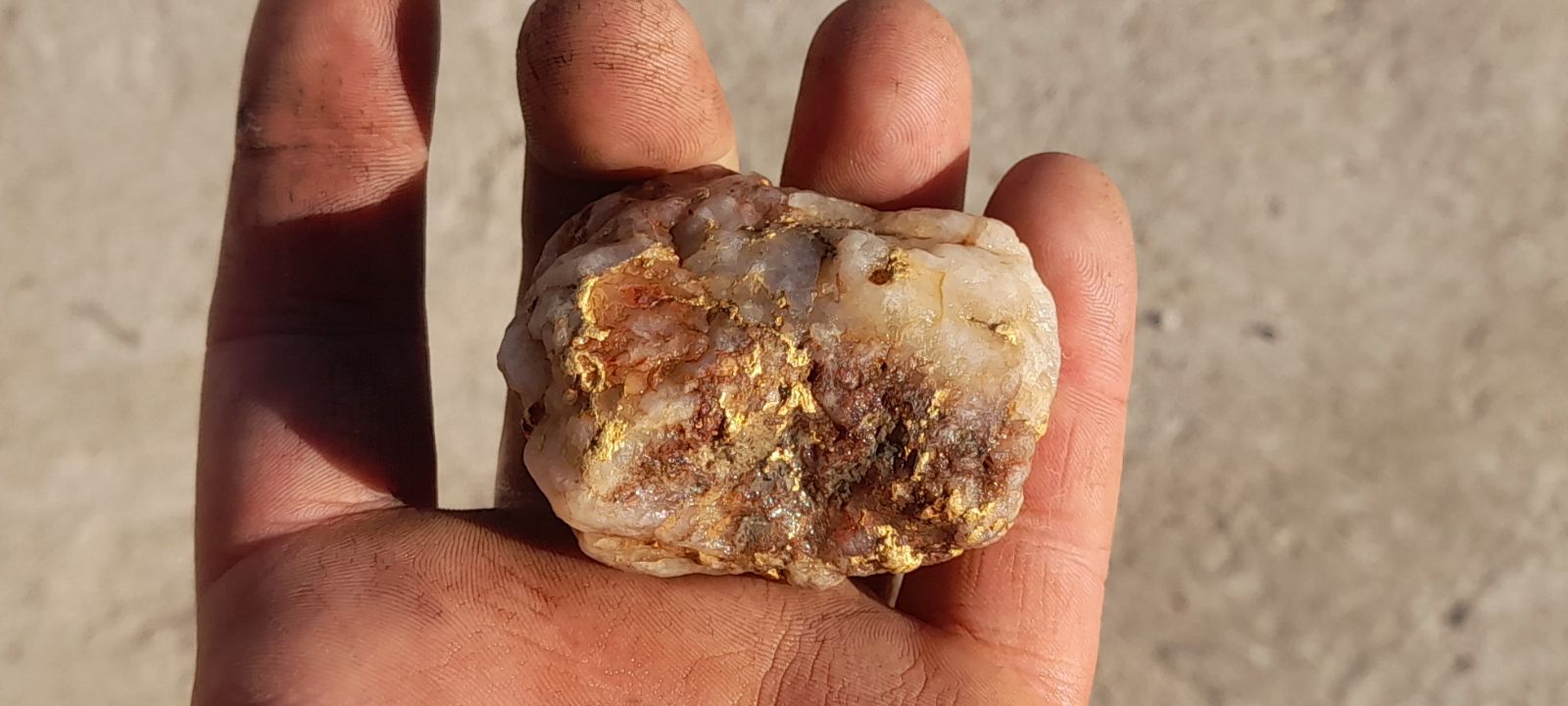
The 41g nugget unearthed at Hill End
Only four days earlier another first-time fossicker in Hill End unearthed a 41-gram nugget, worth AU$9,000 (£4,440), prompting an online frenzy and, doubtless, a fresh influx of gold seekers to the village.
The party’s gold panning instructor, Jhob Drinkwater, 38, formerly a shearer before he was bitten by the gold bug, encourages his charges: “You’re constantly playing with peanuts until you turn around, and oh my, you find a good chunk.”
He shows them the AU$1,000 (£493) worth of gold he collected in a few hours last week, saying: “One of my mentors in Hill End found twice that in one day. It’s a persistence game.”
A year ago Drinkwater found the thousands of dollars worth of gold he needed to purchase his fiancée’s wedding ring and then rode for three days on horseback to cash in his find.
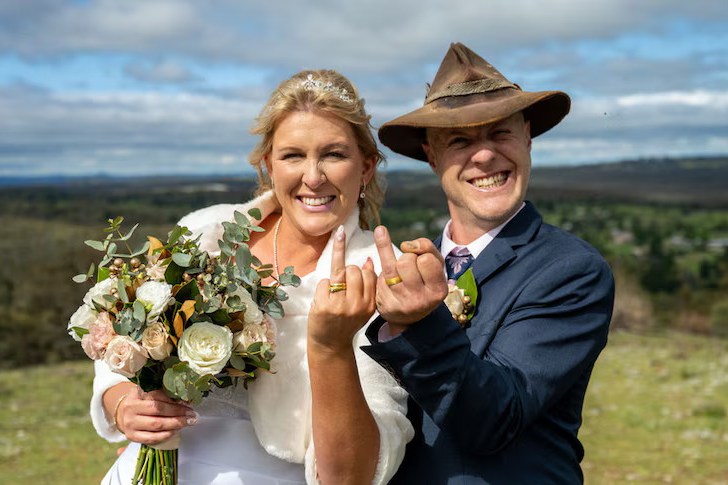
Jhob Drinkwater with his fiancée Sarah Ostini wearing the engagement rings he funded with the gold he found in Hill End

Drinkwater at Hill End
DAMIAN SANCHEZ
In keeping with the gold seeker’s code of secrecy, he has not revealed where in Hill End he found the haul, saying only: “My secret spot is almost like travelling through an Amazon jungle.”
It is a similar tale in the nearby village of Sofala, a town of just 100, that boasted 22 pubs at the height of the 19th century gold rush and housed more than 20,000 miners, many Chinese. Today the town’s remaining hotel is again bustling by mid-afternoon and the town’s shops are doing a brisk trade in mining paraphernalia.
Victoria Albury’s café has recently doubled its opening hours to cope with the influx of gold hunters. “There’s heaps of camp areas all along the river, and they’re prospecting,” Albury said.
Jim Rutherford, the bearded owner of Hill End’s general store, so isolated from modern Australia that customers pay with cash because there is no mobile phone coverage and limited internet, said: “We all know that in times of world chaos, people run to gold.
“In the last couple of days I am aware of at least two nuggets, each over AU$9,000 [£4,440] worth, that have pulled out of the river here,” he added. “The question always is: ‘is there any gold left in Hill End?’ The short answer is where the gold was, the gold always will be.
“The amateur gold hunters are the bubbly thing keeping me going,” he said. “That is definitely being fuelled by the rising gold price.”
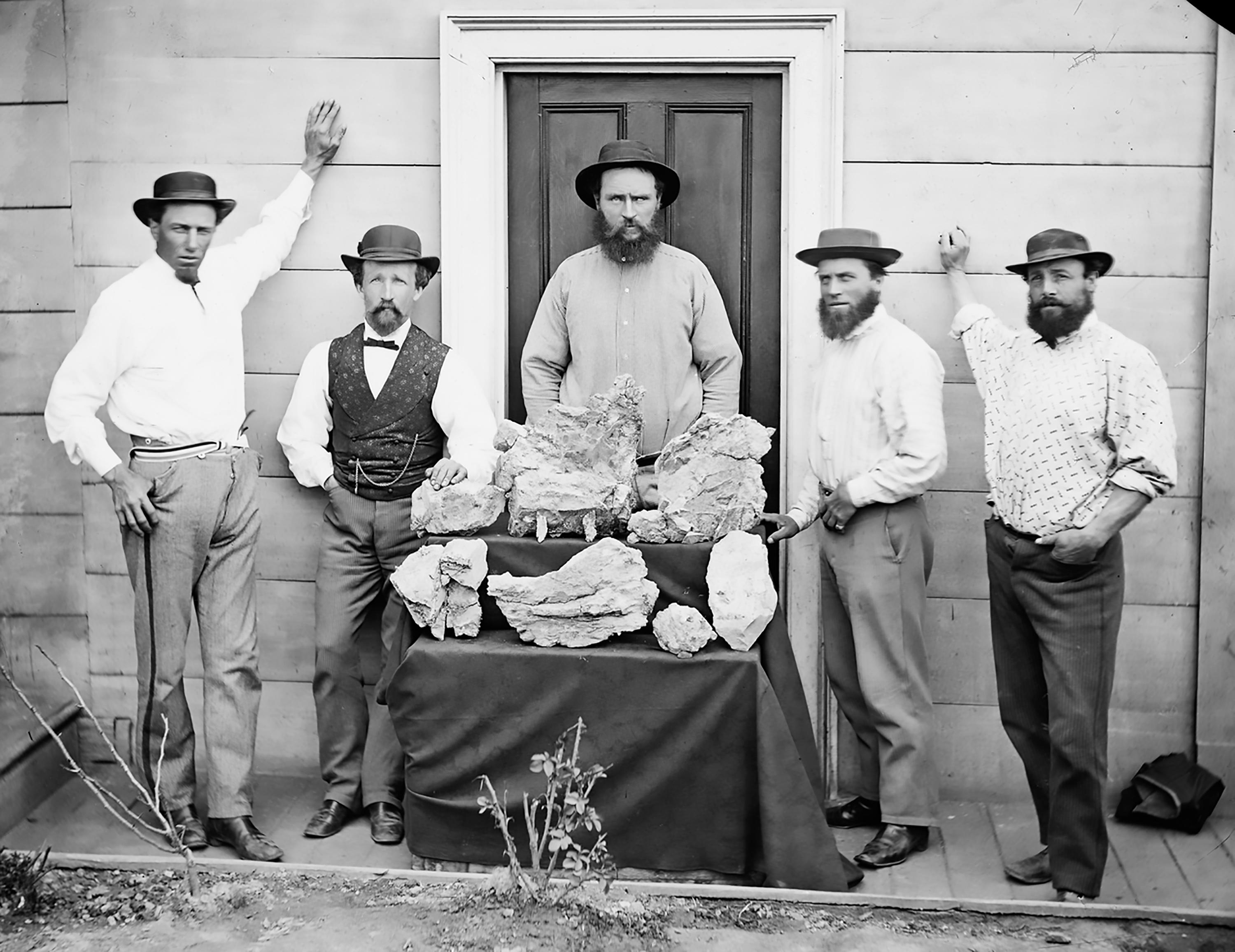
Workers in Hill End in the 19th century
ALAMY
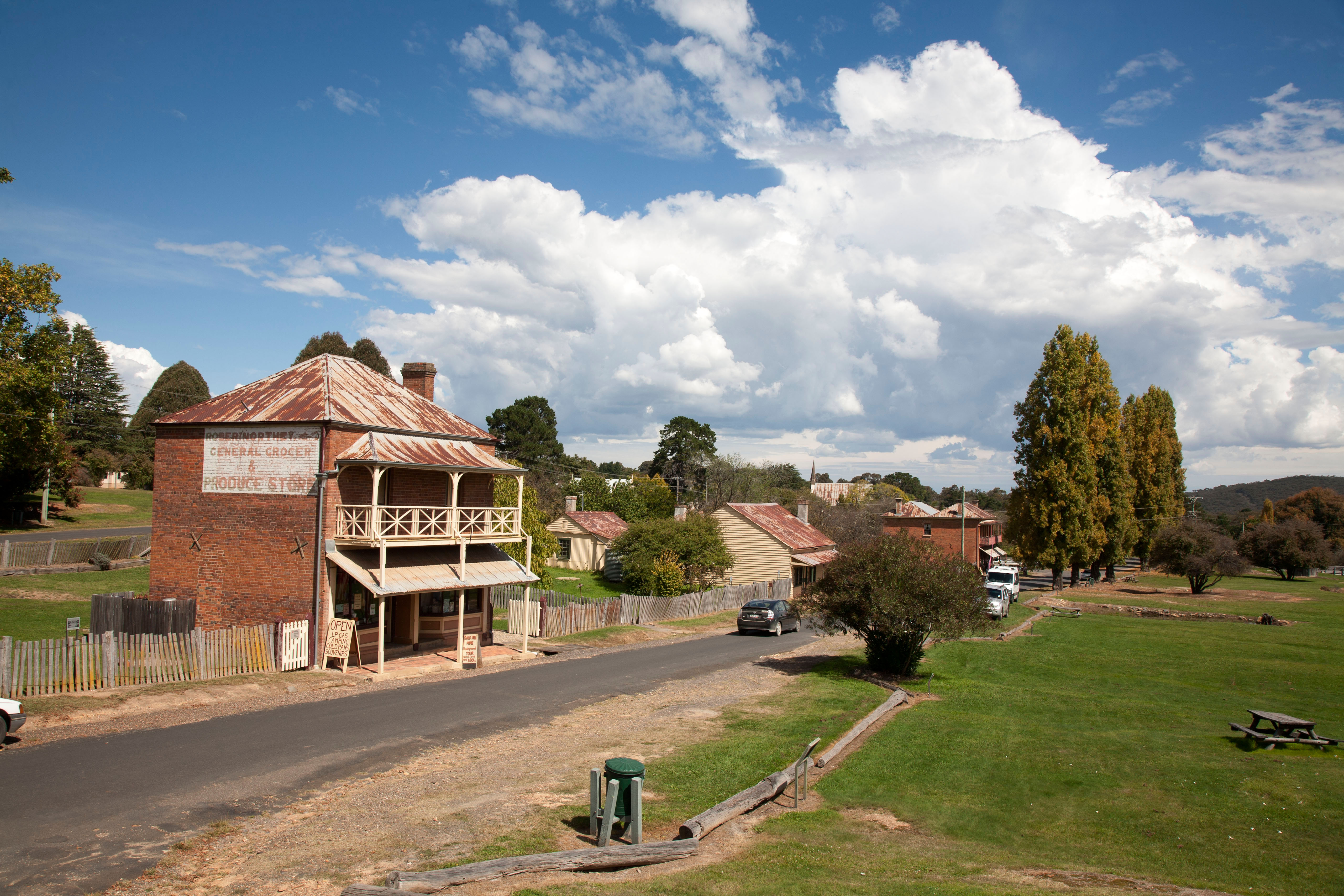
Rutherford is also benefiting from the string of long abandoned gold mines, including an old mine near Hill End whose workers flood his café, being reopened across remote Australia by larger corporate miners seeking to cash in on record gold prices.
Rutherford added that the rising price of gold had made modern, highly accurate electronic gold detection devices more affordable, adding to the fresh wave of gold diggers. The nation’s newest billionaire is a 91-year-old former nurse, Pamela Wall, who is the biggest shareholder in an Adelaide company, Codan, that makes the detection devices. Such is the roaring demand for Codan’s gold detectors, its shares have surged 97 per cent this year.
It is not just travellers to remote parts of Australia — the world’s third largest gold producer behind China and Russia — who have joined the gold rush. Jordan Eliseo, the general manager of ABC Bullion Australia, said demand was so strong that more often than not there were queues of people lining up outside the company’s central Sydney store to buy. Similar queues have also been reported forming at the Perth Mint.

A group of budding gold hunters in Hill End, a hamlet that has seen an influx of people in search of fortune
Though gold prices fell marginally on Friday — a result traders said was due to easing tensions in Gaza — the lines of gold purchasers were still forming outside in Sydney’s Martin Place. At least 30 people were waiting to get into the store at midday on Friday. On Thursday the line of customers persisted until late afternoon.
• Should you join the gold rush?
Emily Scott, a Sydney resident, said she had been investing in gold bullion for ten years and got “a bit of a shock” seeing the line of those looking to buy. She worried she would not make it to the front before closing. “I know the price is going up, I just wanted to top mine up,” she said.
The Australian economy is set to benefit from the new gold rush as the rare metal is on track to become the nation’s second largest resource export behind iron ore. It will soon overtake exports of liquefied natural gas in value after the “extraordinary surge” to record prices, the Australian government said last week.
For Tex, however, the profits from gold are immaterial. He and his mother are simply pleased that he has found something more fun than his online devices.

